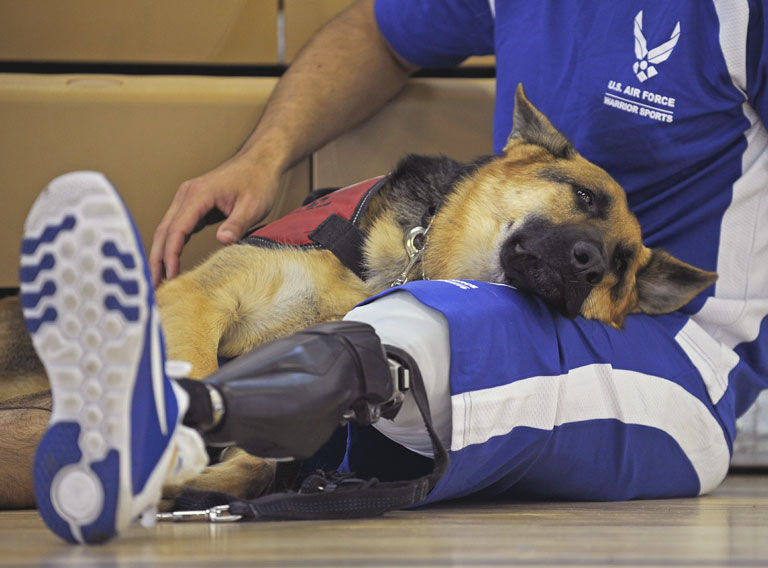I’m a Veteran. Does That Affect My Disability Benefits?
Most Americans can seek disability benefits through two programs: Social Security disability insurance (SSDI) and supplemental security income (SSI). If you are a veteran, however, you have access to two additional programs: Veterans Affairs (VA) disability benefits and VA pension. SSDI and VA Disability: Similarities and Differences Social Security disability and the VA disability program […]

April 17, 2017
Most Americans can seek disability benefits through two programs: Social Security disability insurance (SSDI) and supplemental security income (SSI). If you are a veteran, however, you have access to two additional programs: Veterans Affairs (VA) disability benefits and VA pension.
SSDI and VA Disability: Similarities and Differences

Social Security disability and the VA disability program are similar because they offer benefits to those who are disabled regardless of their income. However, there are key differences in how the programs define “disability”:
In order to qualify for SSDI, you must be disabled to the point of being unable to work any job, and you must be expected to be disabled for at least a year. This means that you can’t receive any SSDI benefits for a partial or short-term disability. It’s important to be treating with a doctor throughout the approval process since your doctor’s professional opinion will be given weight in the Social Security Administration’s (SSA) decision. It doesn’t matter how you were disabled as long as you have worked at least five of the last ten years.
For VA disability, your disability is calculated on a scale of 0 to 100 percent disability. You can still receive benefits even if you’re less than 100 percent disabled, and your condition can be short-term. It’s still good to be treating with a doctor, but your doctor’s professional opinion won’t be given any extra weight when it comes to your approval for VA disability. To qualify for VA disability, your disability must be connected to your military service.
Can You Receive Both SSDI and VA Disability Benefits?

Yes. Approval for VA disability may actually help with your SSDI case if your percentage of disability is high enough. Since you must be completely disabled to qualify for SSDI, a high percentage of disability in your VA approval will show the SSA that another federal agency considers you completely or near-completely disabled.
However, approval for SSDI doesn’t really help if you then decide to apply for VA disability. The SSA isn’t concerned with how you were disabled, but you must have a service-connected disability in order to qualify for VA disability. That’s why your SSDI approval doesn’t really hold much weight in your VA disability case, although the VA is required to consider your SSDI records.
SSI and VA Pension: Similarities and Differences

SSI and the VA pension program are both needs-based programs based on a person’s disabled status and level of income. They tend to offer less substantial benefits than SSDI and VA disability, but they may be easier to qualify for in certain cases.
For SSI, you do not need to have a solid work history or show that you have paid into the Social Security system. You simply must be either blind, disabled, or aged 65 or older, and you must earn a limited amount of household income. Again, the circumstances surrounding how you became disabled are unimportant for SSI just like they are for SSDI—what matters is not how you became disabled, but whether or not you are disabled permanently or long-term (at least a year).
The VA pension is different from SSI in that it is only available to veterans, of course, but most other considerations for approval are fairly similar. The VA pension is available to veterans with a limited income, and it covers veterans with disabilities that aren’t connected to their military service.
Can My Veteran Status Speed Up My Approval Process?

For Social Security disability benefits, being a veteran can in some cases speed up the approval process. If you were disabled on active duty on or after October 1, 2001, you may qualify for an expedited decision from the SSA. You must have been on active duty, but even if the cause of your disability was not related to your service, you can still qualify for an expedited decision.
If you are still on active duty and receiving pay, you may still be able to qualify for SSDI since service members sometimes continue to receive full pay even if they are unable to work. However, if you are still actually working, you will likely be unable to receive SSDI benefits. You may be able to seek approval for VA disability benefits since the VA still issues benefits for those with partial disabilities and doesn’t require that someone be completely disabled and unable to work in order to qualify.
Help from an Indiana Social Security Disability Attorney
As a disabled veteran, you have more options for which programs you may choose to apply for to receive disability benefits. It can be difficult to know which programs you qualify for and which programs you can receive simultaneously.
An Indiana Social Security disability attorney can review your case and help you determine which program you are most likely to qualify for. Call Hensley Legal Group today for a free case review.
Available 24/7
Free Case Review
You won’t pay any fees until we win your case.
It’s easy - you can: